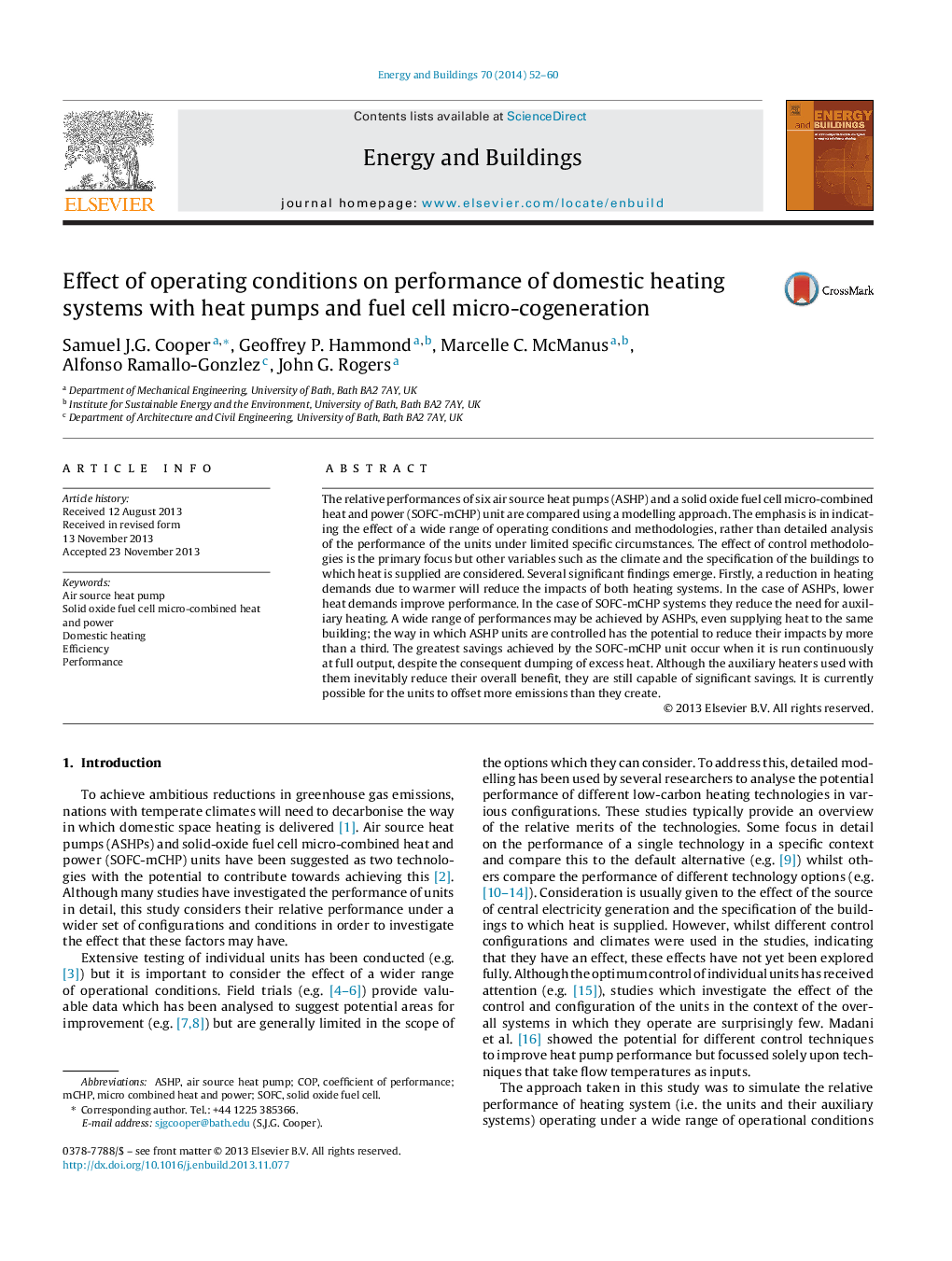| کد مقاله | کد نشریه | سال انتشار | مقاله انگلیسی | نسخه تمام متن |
|---|---|---|---|---|
| 263052 | 504063 | 2014 | 9 صفحه PDF | دانلود رایگان |
• Appropriate control could reduce emissions associated with ASHPs by over a third.
• SOFC-mCHP unit should be operating continuously at maximum electrical output.
• SOFC-mCHP based heating systems can offset more emissions than they emit.
• Lower heat demands associated with climate change may improve performance of ASHPs.
• SOFC-mCHP units may require auxiliary heaters, reducing system electrical efficiency.
The relative performances of six air source heat pumps (ASHP) and a solid oxide fuel cell micro-combined heat and power (SOFC-mCHP) unit are compared using a modelling approach. The emphasis is in indicating the effect of a wide range of operating conditions and methodologies, rather than detailed analysis of the performance of the units under limited specific circumstances. The effect of control methodologies is the primary focus but other variables such as the climate and the specification of the buildings to which heat is supplied are considered. Several significant findings emerge. Firstly, a reduction in heating demands due to warmer will reduce the impacts of both heating systems. In the case of ASHPs, lower heat demands improve performance. In the case of SOFC-mCHP systems they reduce the need for auxiliary heating. A wide range of performances may be achieved by ASHPs, even supplying heat to the same building; the way in which ASHP units are controlled has the potential to reduce their impacts by more than a third. The greatest savings achieved by the SOFC-mCHP unit occur when it is run continuously at full output, despite the consequent dumping of excess heat. Although the auxiliary heaters used with them inevitably reduce their overall benefit, they are still capable of significant savings. It is currently possible for the units to offset more emissions than they create.
Journal: Energy and Buildings - Volume 70, February 2014, Pages 52–60
